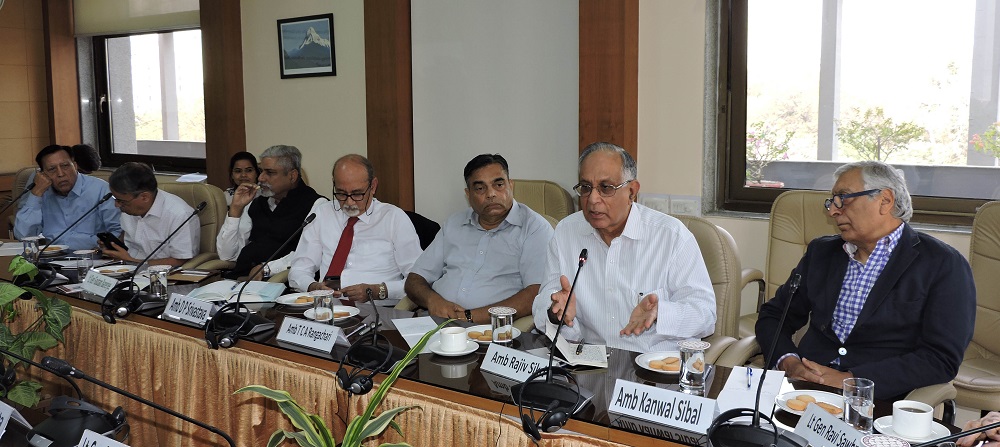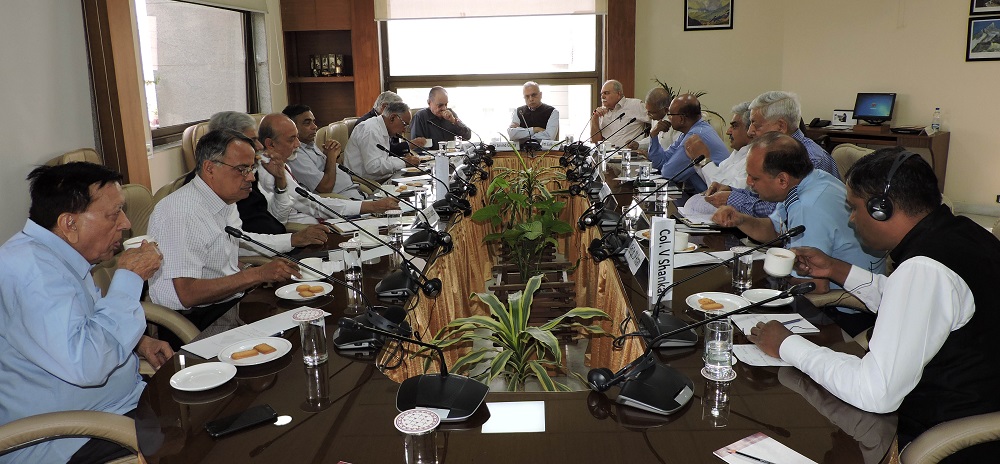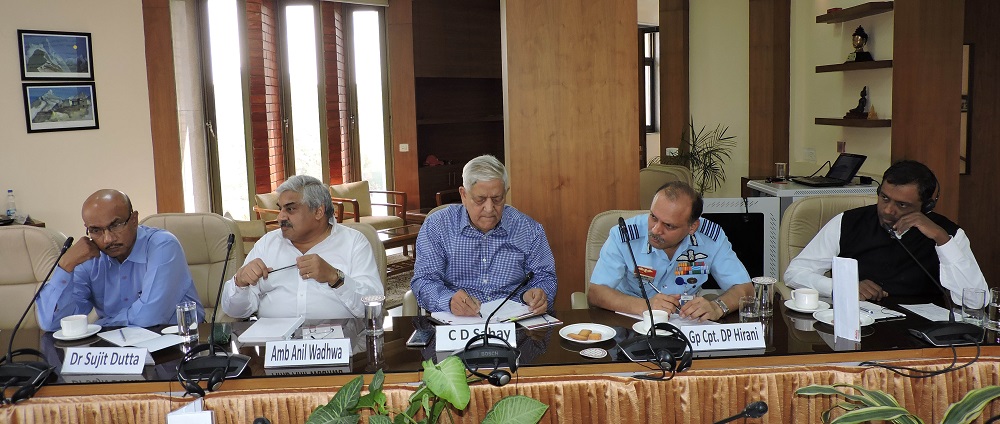A brainstorming session on ‘India-Bhutan Relations and the Chinese Factor’ was conducted on 19 March, 2018. Director VIF, Dr. Arvind Gupta, delivered the opening remarks and laid out the context of India-Bhutan situation in the light of the Chinese road building and military activity going on in the disputed Doklam region of Bhutan, which was the major reason for India-China stand-off last year. Amb. Sudhir Vyas, Amb. Rajiv Sikri, Amb. TCA Rangachari, Lt. Gen. SL Narasimhan, Amb. Ashok Kantha, Col. V. Shankar, Amb. Dinkar Srivastava, Amb. Anil Wadhwa, Amb. Kanwal Sibal, Prof. Sujit Dutta, Lt. Gen. Ravi Sawhney, Mr. CD Sahay, Brig. Vinod Anand, Mr. RNP Singh and Lt. Gen. Gautam Banerjee participated in the discussion. Salient points that emerged from the discussion are as described below.

Hydro-electric Power Projects in Bhutan
Hydro-electric cooperation is the pillar of Indo-Bhutan relations. Since 2007, Bhutan is dependent on the hydro-power resources and using it for their future development programmes. There are geological and Detailed Project Report (DPR) issues with these projects. The participants stressed that the hydro-electric power projects undertaken by India in Bhutan must be completed on time and the delays should be avoided at all costs.
Upgrading Border Areas
The border area population is severely neglected. The state of infrastructure on the Indian side of the international border with Bhutan and Nepal is in a dismal condition. On the contrary, the situation is much better on the Bhutanese side. The Indian government should undertake urgent steps to develop the border region on the Indian side, and improve border infrastructure and border management. India-Bhutan border region is the primary interface of Bhutan to the rest of the world. Any disturbances in the border areas, for example, Doklam and Gorkhaland can become a major irritant in the bilateral relations.

The Doklam Crisis
The ulterior motive of China during Doklam apparently was to create a political wedge between India and Bhutan. China has gradually changed the status quo in the disputed area. Earlier, they didn’t have a permanent presence in Doklam. Now they are stationed much nearer the border Tri-Junction and Indian positions. This threatens India’s road and rail connections with the North-East as the Siliguri Corridor comes under the direct military range of the Chinese military.
The participants were of the view that the presence of the Indian forces in the concerned region is satisfactory and a sudden escalation of tension can be managed well. The terrain on the Chinese side of Doklam is rugged and therefore, construction of assets by China in the occupied area will be limited to an extent.
Boundary Talks between Bhutan and China
Bhutan and China will have a fresh round of border settlement talks later this year. Bhutan’s bargaining position is not strong. China will offer inducements as well as apply pressure to achieve a border settlement with Bhutan. An unfavourable settlement under any pressure or for benefit of political appeasement will be harmful for Bhutan.

Economic and Logistical Networking
India has a considerable economic presence in Bhutan and it must maintain that to neutralise Chinese overtures. Market for Bhutanese products in India, especially the Bhutan timber products has declined in recent years. Indian authorities must undertake steps to promote these products through incentives, if necessary.
Bangladesh, Bhutan India and Nepal (BBIN) Grouping
Bhutan has so far not ratified the BBIN motor vehicle agreement. It has however said it won’t hold up the other countries to enhance their connectivity. The participants were of the view that the issue may be taken up again with the Bhutanese Government since it would allow greater movement of people and goods across borders and help its economy.
Role Played by Social Media amongst the Youth in Bhutan
A few reports published at the time of Doklam stand-off projected negative stories about India but the larger public opinion in Bhutan is friendly towards India. At the time of Doklam, the Bhutanese were more concerned about the delays in delivering the ongoing Indian projects rather than the stand-off. Notably, there are other factors that have contributed to the emergence of a skeptical sentiment. Regulation of kerosene supply to Bhutan in 2013 became an issue in the social media, especially among the youth.
It was agreed by all the participants that India should set up top-class educational institutions and hospitals in Bhutan and the Indian developmental assistance programme should be enhanced rather than reduced. Bhutan will always remain important for India’s security just as a strong Indo-Bhutan relationship is crucial for Bhutan’s security and well-being.







